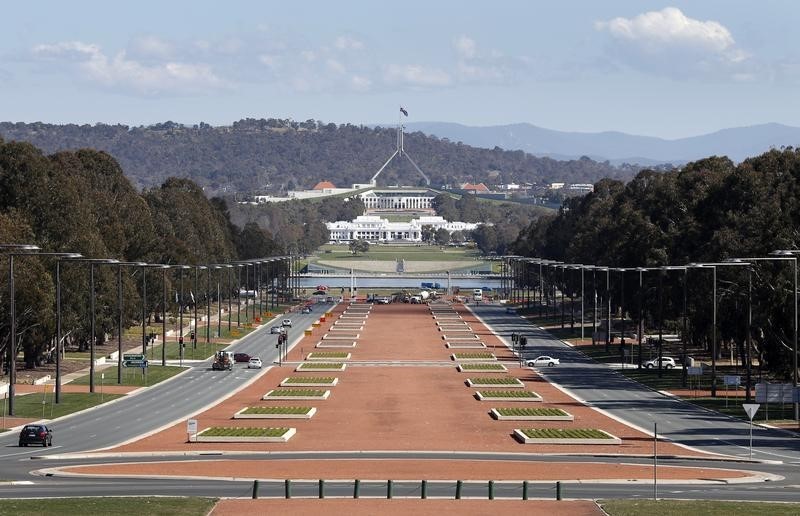By Colin Packham
CANBERRA, April 2 (Reuters) - Australia's conservative government is set to offer disenchanted voters tax cuts and handouts while still delivering the first budget surplus in more than a decade on Tuesday, just days before it has to call an election for mid-May.
Armed with stronger tax revenues and higher prices for commodity exports, Treasurer Josh Frydenberg is expected to boost infrastructure spending, increase previously announced personal tax cuts and make some direct payments to voters to address cost-of-living concerns.
Well behind in political polls, Prime Minister Scott Morrison is likely to put income tax cuts at the forefront of his re-election campaign, but will still deliver an anticipated budget surplus of around A$4 billion ($2.84 billion) for the fiscal year ending June 2020.
Australia last recorded a budget surplus in the June 2008 fiscal year, before the global financial crisis hit. I get the opportunity to give Australians further tax relief, I never miss the opportunity," Morrison said late last week.
Frydenberg on Monday said the budget will also remove restrictions on some retirees topping up their pension savings, a move widely seen as an attempt to appeal to older voters.
The budget is Morrison's final chance to re-engage voters alienated by the ousting of his predecessor, Malcolm Turnbull, in a backbench revolt last year. election has to be called within two weeks and the last possible date it can be held is Saturday, May 18. Elections must be held on a Saturday and the minimum campaign period after the vote is called is 33 days.
Morrison's ascension to the top job last year was seen as a compromise bid to heal ideological differences, but the government remains fractured and he has been unable to deliver any legislative victories.
Morrison lost his parliamentary majority late last year after voters in an affluent Sydney electorate elected an independent to replace Turnbull, who quit politics. government divisions on energy policy and climate change hampering his legislative agenda, Morrison is expected to campaign on his government's economic credentials.
Although unemployment is at an eight-year low, the expected budget cash splash would still be welcome given falling home prices and weakening consumer spending point to a slowing economy.
Annual economic growth eased to a sub-par 2.3 percent in the last three months of 2018, while early indicators suggest this year has started on a weak footing, prompting financial markets to price-in an interest rate cut in August 0#YIB: .
Australia's central bank has left rates at a record low 1.50 percent since August 2016, and has this year shifted to a neutral bias on the direction of the next move in rates.
